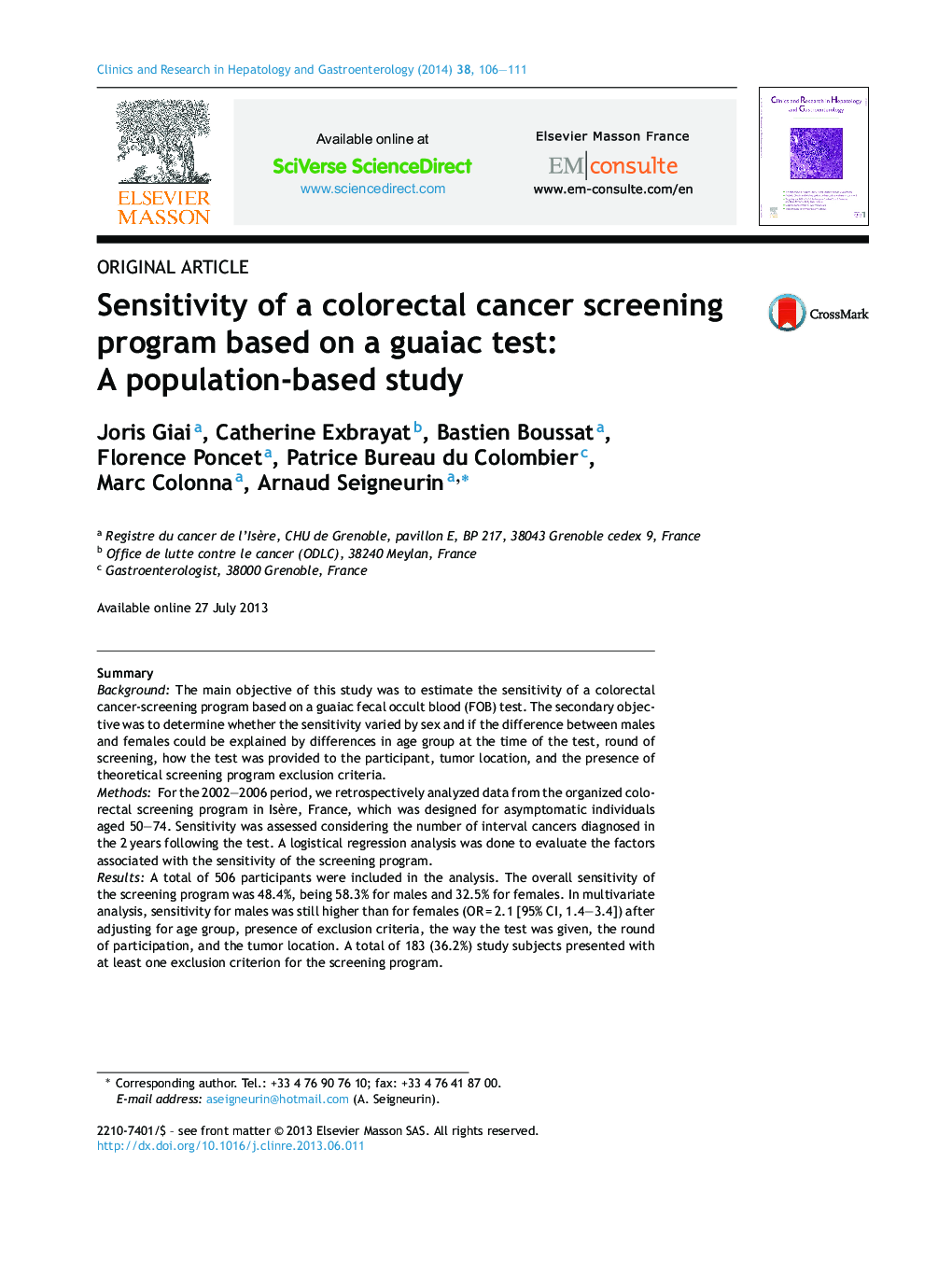| Article ID | Journal | Published Year | Pages | File Type |
|---|---|---|---|---|
| 3286361 | Clinics and Research in Hepatology and Gastroenterology | 2014 | 6 Pages |
SummaryBackgroundThe main objective of this study was to estimate the sensitivity of a colorectal cancer-screening program based on a guaiac fecal occult blood (FOB) test. The secondary objective was to determine whether the sensitivity varied by sex and if the difference between males and females could be explained by differences in age group at the time of the test, round of screening, how the test was provided to the participant, tumor location, and the presence of theoretical screening program exclusion criteria.MethodsFor the 2002–2006 period, we retrospectively analyzed data from the organized colorectal screening program in Isère, France, which was designed for asymptomatic individuals aged 50–74. Sensitivity was assessed considering the number of interval cancers diagnosed in the 2 years following the test. A logistical regression analysis was done to evaluate the factors associated with the sensitivity of the screening program.ResultsA total of 506 participants were included in the analysis. The overall sensitivity of the screening program was 48.4%, being 58.3% for males and 32.5% for females. In multivariate analysis, sensitivity for males was still higher than for females (OR = 2.1 [95% CI, 1.4–3.4]) after adjusting for age group, presence of exclusion criteria, the way the test was given, the round of participation, and the tumor location. A total of 183 (36.2%) study subjects presented with at least one exclusion criterion for the screening program.ConclusionThe sensitivity of the colorectal cancer-screening program based on a guaiac test was insufficient, being higher for males than for females. This difference in sensitivity was not entirely explained by differences in age, characteristics of screening participation, and tumor location.
